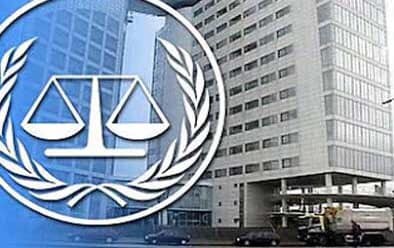القانون الجنائي الدولي هو مجموعة من القانون الدولي العام المصمم لحظر فئات معينة من السلوك التي يُنظر إليها عادةً على أنها فظائع خطيرة ولجعل مرتكبي هذا السلوك خاضعين للمساءلة الجنائية عن ارتكابهم. الجرائم الأساسية بموجب القانون الدولي و الإبادة الجماعية ، جرائم الحرب ، الجرائم ضد الإنسانية ، و جريمة العدوان . تتناول هذه المقالة أيضًا الجرائم ضد القانون الدولي ، والتي قد لا تكون جزءًا من مجموعة القانون الجنائي الدولي.
يحكم القانون الدولي “الكلاسيكي” علاقات وحقوق ومسؤوليات الدول. يتعامل القانون الجنائي بشكل عام مع الحظر المفروض على الأفراد ، والعقوبات الجزائية على انتهاك تلك الحظر المفروض من قبل الدول الفردية. يتألف القانون الجنائي الدولي من عنصرين في أنه على الرغم من أن مصادره هي مصادر القانون الدولي ، فإن عواقبه هي عقوبات جزائية مفروضة على الأفراد.
International criminal law is a body of public international law designed to prohibit certain categories of conduct commonly viewed as serious atrocities and to make perpetrators of such conduct criminally accountable for their perpetration. The core crimes under international law are genocide, war crimes, crimes against humanity, and the crime of aggression. This article also discusses crimes against international law, which may not be part of the body of international criminal law.

